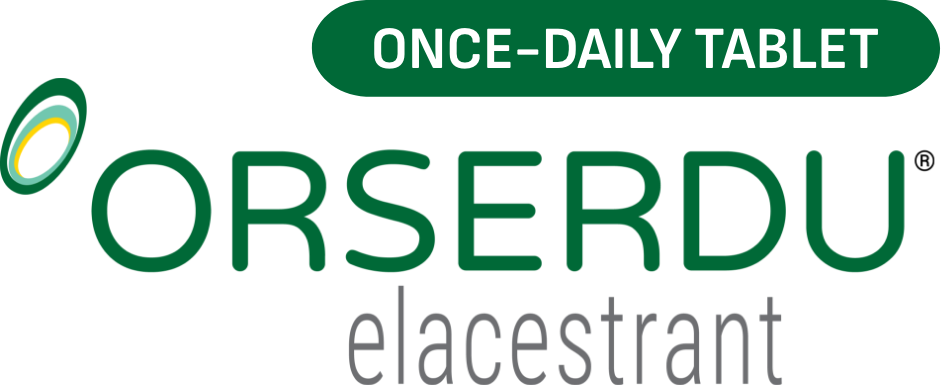
less risk of disease progression with ORSERDU
In the clinical study, people who took ORSERDU had a 45% reduction in the risk of their cancer growing, spreading, or getting worse when compared to people who took other hormone therapies.
ORSERDU works better than certain common hormone therapies
ORSERDU was studied over 2 years in 228 postmenopausal women and adult men to see if it would stop or slow progression in ESR1-mutated ER+/HER2- advanced or metastatic breast cancer. When cancer progresses, it spreads, grows, or gets worse.
In the clinical study, ORSERDU was compared with common hormone therapies such as exemestane, anastrozole, letrozole, and fulvestrant. No one was given a placebo (sometimes called a sugar pill).
All people in the clinical study had previously taken a type of treatment called a CDK4/6 inhibitor. These included treatments such as Ibrance® (palbociclib), Kisqali® (ribociclib), and Verzenio® (abemaciclib).
In the clinical study, ORSERDU was given alone. It was not given in combination with any other therapies.
Ibrance is a registered trademark of Pfizer Inc. Kisqali is a registered trademark of Novartis AG. Verzenio is a registered trademark owned or licensed by Eli Lilly and Company, its subsidiaries or affiliates.
CDK4/6, cyclin-dependent kinase 4/6; ER+, estrogen receptor-positive; ESR1, estrogen receptor 1; HER2-, human epidermal growth factor receptor 2-negative.
ORSERDU safety



